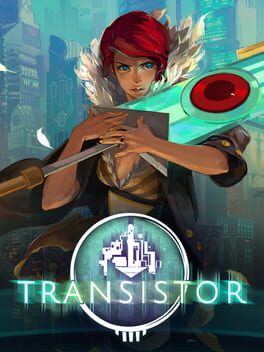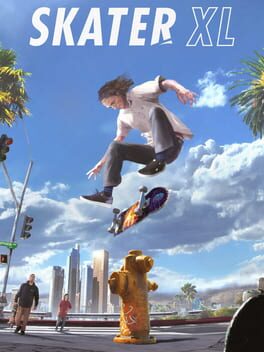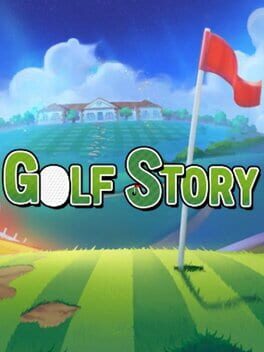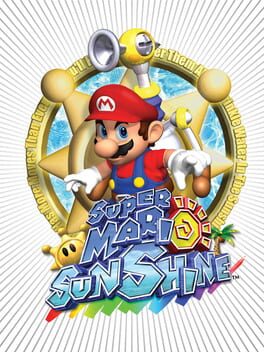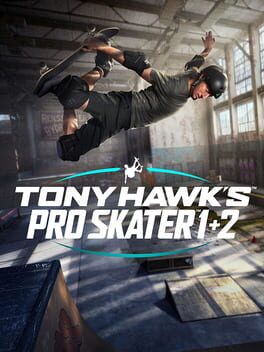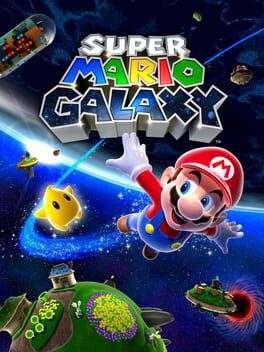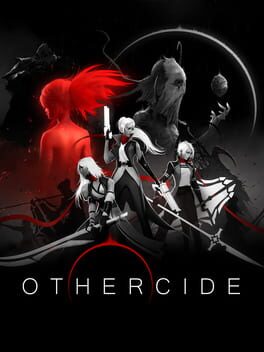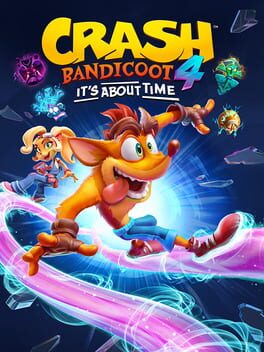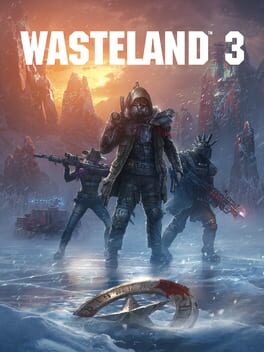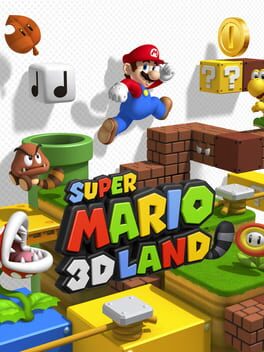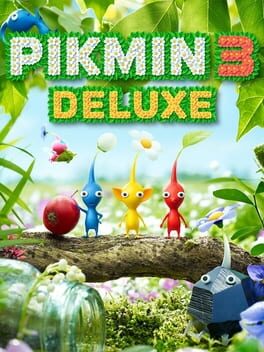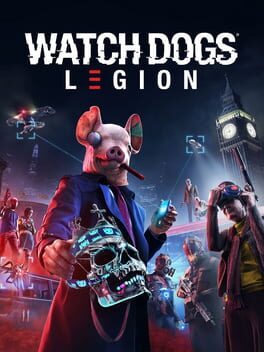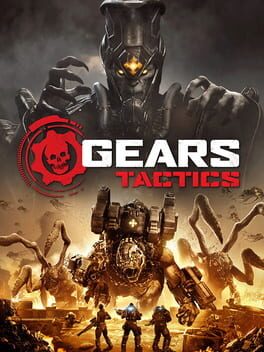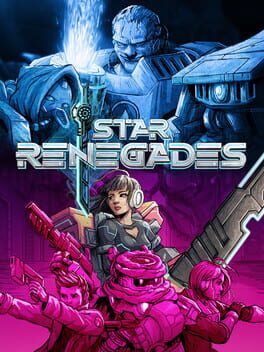TheBored23
2014
2018
Skater XL demands of players that they find their own fun. I don't mind doing this; I found the skating mechanics to be really satisfying, and they have a depth that I didn't realize at first. But unfortunately my ability to create my own fun was let down by the game: only a couple of the maps feel big enough to properly explore, and there's a lack of polish in some areas that impeded my play. Also, the soundtrack repeats in the same exact order every time, which is a baffling choice.
2017
A throwback to handheld Mario Golf games of the past, Golf Story stands on its own with solid (if underexplained) mechanics and genuinely funny writing. There are times when I would have liked a little more golf to go with all the story, but the side tasks keep things fresh and contain a few fun surprises.
2002
I went into this re-release wanting to like this game. Sunshine was my first 3D Mario title, and though I didn't love it as a kid, I've always had a hunch that its negative reputation was unfair.
Playing it now, 18 years later, I was pleasantly surprised by what I found. Mario's moveset is a joy to wield, and bouncing around Delfino Plaza is as fun as I'd remembered. Unlike some more recent titles, Sunshine challenges players to make the most out of Mario's abilities, and the platforming challenges are really delightful to get through. Some mechanics show their age, and a number of shines are tedious or just plain bad, but I think these things are outweighed by the fun.
Sunshine may not be a better game on the whole than Odyssey, but it serves as a great antidote to what I felt Odyssey was lacking in terms of a platforming focus.
Playing it now, 18 years later, I was pleasantly surprised by what I found. Mario's moveset is a joy to wield, and bouncing around Delfino Plaza is as fun as I'd remembered. Unlike some more recent titles, Sunshine challenges players to make the most out of Mario's abilities, and the platforming challenges are really delightful to get through. Some mechanics show their age, and a number of shines are tedious or just plain bad, but I think these things are outweighed by the fun.
Sunshine may not be a better game on the whole than Odyssey, but it serves as a great antidote to what I felt Odyssey was lacking in terms of a platforming focus.
I don't have any real nostalgia for these games; I vaguely remember renting them on the N64, but I don't think I got past the first level of either. Even without that sentimentality, this is a game worth playing in 2020. Those original mechanics hold up all these years later, though they did result in shredding my left analog stick.
2007
My first thought upon playing Mario Galaxy this time around was "oh wow, Mario feels so sluggish." It's a testament to the creativity and invention Nintendo put into the level design that that fact didn't bother me. Every galaxy, every level has some part in it to make me say "damn, that's clever." Great ideas are formed, expanded upon, and then set aside for the next one in line. This is a tour de force.
2020
Othercide for the first time feels like a game that has learned from the games that learned from XCOM. You can still make out the framework of mechanics that have defined the tactics genre in recent years, but they're better obscured here, and the formula feels genuinely different in ways that are mostly good.
Unfortunately, the innovative tactics in Othercide come alongside a roguelike structure that only serves to artificially lengthen the game by requiring players to grind for experience. There isn't enough variety between runs to justify the repetition; combat encounters are often identical, and I never felt like I was trying a new approach on a new run. There's a great 20 hour tactics game here stuck inside a 40-hour title that's merely good.
Unfortunately, the innovative tactics in Othercide come alongside a roguelike structure that only serves to artificially lengthen the game by requiring players to grind for experience. There isn't enough variety between runs to justify the repetition; combat encounters are often identical, and I never felt like I was trying a new approach on a new run. There's a great 20 hour tactics game here stuck inside a 40-hour title that's merely good.
If you just want to get to the end of a polished 3D platformer, you'll probably have a good time with Crash 4. As a newcomer to the series, I found the level design clever, the mechanics inventive, and the boss battles fun in a way that is rarely the case in platformers.
If you feel compelled to 100% games like this, it frankly seems like a nightmare. Beating the game can be a stiff enough challenge, but finding all of the obscurely-hidden crates while making it through these levels (and the alternate versions of the levels that play more or less the same) is a task for masochists.
If you feel compelled to 100% games like this, it frankly seems like a nightmare. Beating the game can be a stiff enough challenge, but finding all of the obscurely-hidden crates while making it through these levels (and the alternate versions of the levels that play more or less the same) is a task for masochists.
2020
Wasteland 3 is fine, basically. You can have some decent tactical battles in a world that is modestly interesting. But in a dozen hours the game didn't give me too much of an idea of who the characters I was controlling were, and I encountered a fair amount of jank and bugs along the way. I don't hate it, but I'm not playing it anymore.
2011
2015
Yakuza 0 truly has it all. The intricate plot is laid out in long, hyper-realistic cutscenes, the action is over-the-top, and the pool minigame is as good as any I've played. The game made a stylish first impression on me with its combat, but it was the story that floored me even after the final credits. Along the way it balances the deathly serious with the outright wacky far better than it has a right to. A great video game.
2020
I've played a few games that linger on past their welcome. Pikmin 3 does the opposite; I reached the final part of the story and was shocked at how quickly it arrived. Luckily, there is an ample amount addition fruit to collect and side content to complete, some of which is new in this version. My one real complaint is that I never found a control layout that fully satisfied me.
2020
Watch Dogs Legion is a game I've had a lot of fun playing, but it's also a game that frequently prompts me to wonder "what if?" What if the genuinely cool census and recruitment system had been taken just a little bit further, and your recruits felt like a team rather than just interchangeable parts? What if they didn't force you into shootouts at key points in the story, and instead leaned even further into solid stealth mechanics? What if they hadn't made a snarky AI the narrator of a story featuring slavery and a refugee camp?
I can't fault Watch Dogs Legion entirely for not being an even more ambitious game than it already is, especially given the rocky development it reportedly had. But there's a foundation here in its mechanics and systems for something groundbreaking, and it doesn't quite get all the way there.
I can't fault Watch Dogs Legion entirely for not being an even more ambitious game than it already is, especially given the rocky development it reportedly had. But there's a foundation here in its mechanics and systems for something groundbreaking, and it doesn't quite get all the way there.
2020
Imagine Xcom 2 without the strategy layer or the savescumming. That's Gears Tactics, more or less. It's a tactical power fantasy where expansive skill trees allow you to wipe out swaths of enemies in a single turn, and it's presented with a level of fidelity not often seen in this genre. I had a blast.
2020
I have such mixed feelings about Star Renegades. It started off with a sense of systems overload, but when I started to get the hang of it, I found myself really hooked by the combat, and enjoying the variety of approaches possible. But I lost interest in making my way back up the game's roguelite structure sooner than I was expecting.
